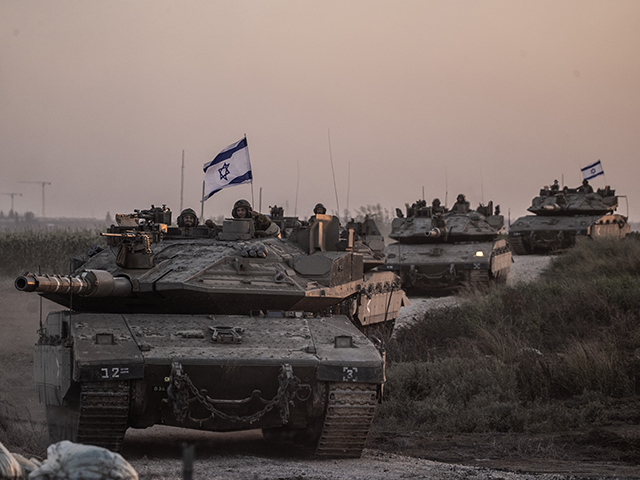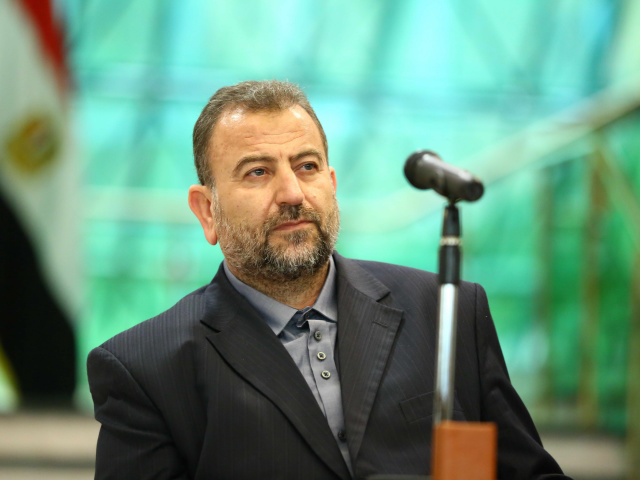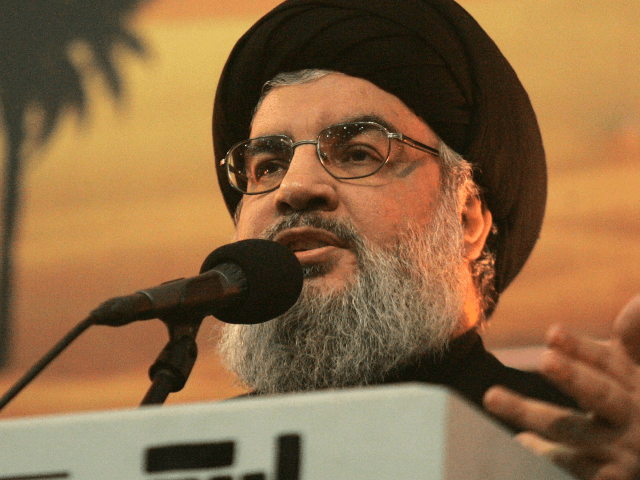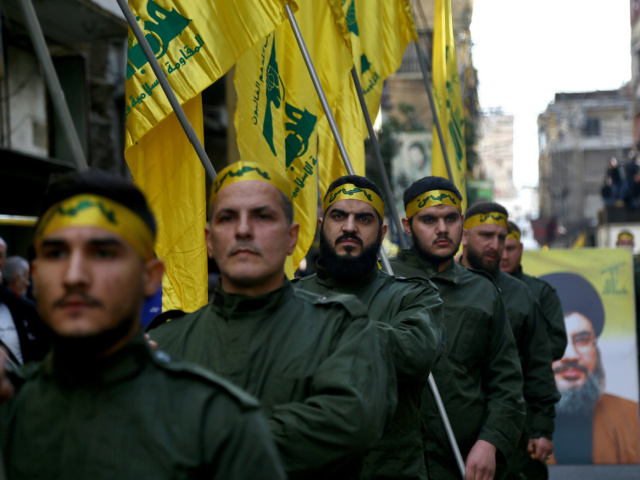The head of the Lebanese terrorist organization Hezbollah, Hassan Nasrallah, threatened to wage a “no-limits” war against Israel in remarks on Wednesday responding to a drone strike on a senior leader of Hamas.
Hamas is a Sunni terrorist organization that shares a genocidal jihadist ideology – and Iranian state funding – with Hezbollah. While the leaders of the two groups and their supporters occasionally clash publicly, Hezbollah has enthusiastically supported Hamas following its terrorist attack on Israel on October 7, in which Hamas terrorists killed 1,200 people, abducted an estimated 250, and engaged in a wide range of atrocities, including infanticide, gang rape, and burning people alive. While Hamas is a Sunni terrorist organization, Hamas is led by Shiite Muslim jihadists.
Israel declared war on Hamas on October 8, vowing to prevent a repeat of the October 7 slaughter by neutralizing the terrorist organization entirely. It has since engaged in self-defense operations in Gaza, where Hamas serves as a de jure governing entity, clearing out Hamas’s complex terrorist infrastructure often installed in civilian sites, such as schools and hospitals.

Israeli tanks move near the Gaza border as the Israeli army deploys military vehicles around the Gaza Strip, Israel, on October 12, 2023 (Mostafa Alkharouf/Anadolu via Getty Images).
Hamas lost one of the founders of its “military” terror wing, the Qassam Brigades, and the second-in-command of its political office, Saleh al-Arouri, on Tuesday to a drone strike targeting a suburb of Beirut, Lebanon, where Hezbollah operates as an influential political party in addition to a terrorist organization. The Qassam Brigades are believed to be the Hamas terrorists responsible for the October 7 attack.

Then-Deputy Chairman of the Movement’s Political Bureau Saleh Al-Arouri makes a speech after signing the reconciliation agreement to build a consensus with Palestinian Fatah movement leader Azzam Al-Ahmad (not seen) in Cairo, Egypt, on October 12, 2017 (Ahmed Gamil/Anadolu Agency/Getty Images).
The Lebanese government, Hamas, and Hezbollah have all blamed Israel for the targeted strike killing al-Arouri. The Israeli government has not taken responsibility for the strike or publicly commented on it at press time. Israeli officials have repeatedly stated publicly the government’s intention to kill all senior Hamas leaders to prevent the planning of another terrorist invasion of the country.
Nasrallah delivered incendiary remarks on Wednesday, vowing revenge on Israel for the strike, his most radical comments since October 7. According to Iranian state outlet Fars News, Nasrallah declared the drone attack on the outskirts of Beirut an attempt to target Lebanon directly, not a strike against Hamas, and claimed Hezbollah would wage a war with “no rules” against Israel if military activity in Lebanon expanded.
“If the enemy thinks about waging war against Lebanon, then our fighting will be with no ceiling, with no limits, with no rules. And they know what I mean,” Nasrallah was quoted as saying. The Hezbollah chief delivered his remarks on television, marking both the strike on al-Arouri and the anniversary of the American operation that neutralized Iranian terrorist mastermind Qasem Soleimani in 2020.
Nasrallah extended condolences to the Hamas terrorists, acknowledging that al-Arouri was killed alongside several other suspected terrorists, and called the strike “blatant Israeli aggression,” despite no confirmation that Israeli armed forces were involved in the bombing.
He went on to once again celebrate the atrocities of October 7, which jihadists refer to as the “al-Aqsa flood,” because it has allegedly “undermined the concept of a secure haven for Zionists, triggering a reversal in the migration dynamics of millions of Jews to Israel.” Nasrallah also claimed that Israel’s anti-Hamas operations in Gaza were failing and Israel was losing “thousands” of soldiers to Hezbollah soldiers in Lebanon, a claim he did not substantiate with any evidence.
“We are not afraid of war. We don’t fear it. We are not hesitant. If we were, we would have stopped at the front,” Nasrallah emphasized.
The Hezbollah chief appeared to be addressing whispers in the Middle East that Hezbollah was not eager to engage in a direct war with Israel on behalf of Hamas, which escalated after he broke his silence on the October 7 attacks in November and did not offer any specifics about how Hezbollah would aid Hamas or combat Israel.
Nasrallah used the address to clarify that Hezbollah did not know that the October 7 attacks were planned and did not participate in them – an apparent attempt to divert Israeli military operations away from his group – while simultaneously insisting that Hezbollah was actively aiding the “Palestinian” cause. Nasrallah also called for other Arab leaders to support Hamas but did not promise any specific Hezbollah resources to do so himself.
“This speech could’ve been an email,” Emirati newspaper the National quoted unimpressed observers online as joking.
Hezbollah has not taken a prominent role in attacking Israel since October 7, though it has attempted to engage in terrorist attacks against the Jewish state in the past. In December, Hezbollah attempted to bomb what it claimed to be an Israel Defense Forces (IDF) target within Israel but, instead, hit a Palestinian Christian church.
Israeli leaders have warned that they would not hesitate to attack Beirut if Hezbollah becomes active in attacking Israeli territory.
“There should be a price for those who attack the State of Israel and those who commit the brutal murder of civilians, women, and children – we must eliminate them,” Israeli Defense Minister Yoav Gallant said in late December. “This reflects in the entire region because everyone can use ‘Google Maps’ and imagine what may happen in Beirut.”


COMMENTS
Please let us know if you're having issues with commenting.